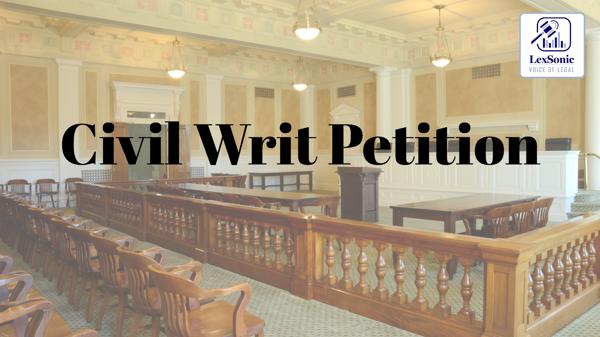In a recent legal judgment of Somnath Tukaram Kuber v/s Meghraj Medeppa Kadadi, Deceased through legal heirs/representative, Hemlata Meghraj Kadadi & Another, the High Court of India dismissed a writ petition challenging an eviction decree, providing a crucial clarification on appellate court powers. The ruling affirms that an appellate court can reverse a trial court's finding on an issue even if the respondent has not filed a formal cross-objection, as long as the ultimate decree of the trial court was in their favor. The case involves a long-standing tenancy dispute over a two-room unit in a residential building in Madha, Solapur. The tenant, who occupied the premises for a monthly rent of Rs. 7, was sued for eviction by the landlord on multiple grounds.
Background of the Dispute:
The landlord initiated the suit by issuing a statutory notice of termination of tenancy, alleging that the tenant had defaulted on rent payments. In addition to the rent default, the landlord claimed the tenant had illegally made several changes to the property:
Unauthorized construction: The tenant was accused of erecting permanent structures in both the front and rear portions of the premises without the landlord's consent.
Change of purpose: The premises, which were let for residential use, were allegedly converted into a hotel business.
Nuisance: The hotel operations, particularly the use of a furnace, were claimed to be a source of nuisance and annoyance to other occupants of the building.
The tenant denied all these allegations, claiming he had paid the rent regularly and that he had not made any unauthorized constructions or caused a nuisance.
The Journey Through the Courts:
The Trial Court reviewed the evidence and found the tenant guilty of defaulting on rent payments. The court noted that the tenant failed to pay the outstanding amount within the statutory one-month period after receiving the notice. Consequently, the court passed a decree of eviction based solely on this ground. However, the trial court dismissed the other three grounds (unauthorized construction, change of use, and nuisance), stating that the landlord had not sufficiently proved when the changes were made.
The tenant then appealed the decision to the District Judge, challenging the eviction decree. The District Judge upheld the trial court's finding on rent default. Crucially, the District Judge also re-examined the other three grounds and found that the evidence was sufficient to prove that the tenant had erected permanent structures, changed the premises' use, and caused a nuisance. Therefore, the District Judge decreed eviction on all four grounds. Aggrieved by this expanded decree, the tenant filed a petition with the High Court.
High Court's Final Ruling:
Before the High Court, the tenant's counsel raised a two-fold argument. First, he claimed the rent default finding was erroneous because the tenant had sent a money order, which the landlord refused. Second, and more significantly, he argued that the District Judge had committed a legal error by reversing the trial court's findings on the other grounds, as the landlord had not filed a cross-objection in the appeal.
The High Court dismissed both arguments.
On the issue of rent default, the court agreed with the lower courts, finding that the tenant had not complied with the specific requirements of the Bombay Rent Act, 1947, to avoid forfeiture of the tenancy. The core of the High Court's judgment, however, addressed the procedural question of the cross-objection. The court clarified that following the significant amendment to the Code of Civil Procedure in 1976 (Order 41 Rule 22), a respondent is not required to file a cross-objection to challenge an adverse finding when the overall decree is in their favor. Citing Supreme Court precedents such as Banarsi And Ors Vs Ram Phal and S. Nazeer Ahmed Vs State Bank of Mysore & Ors, the court explained that the respondent can still "support the decree" by arguing that a particular finding against them should have been in their favor.
In this case, since the trial court had passed an eviction decree in the landlord's favor, the landlord was not an "aggrieved party" who needed to file an appeal or a cross-objection to the decree itself. The landlord was legally entitled to argue before the District Judge that the findings on the other issues (permanent structures, change of use, and nuisance) were incorrect and should be reversed.
The High Court also reviewed the evidence and confirmed the findings of the District Judge, concluding that the tenant had indeed run a hotel business from a residential property, causing nuisance to the neighbors, and had erected permanent structures. The petition was ultimately dismissed, and the eviction decree was upheld on all grounds, with costs awarded against the tenant.

